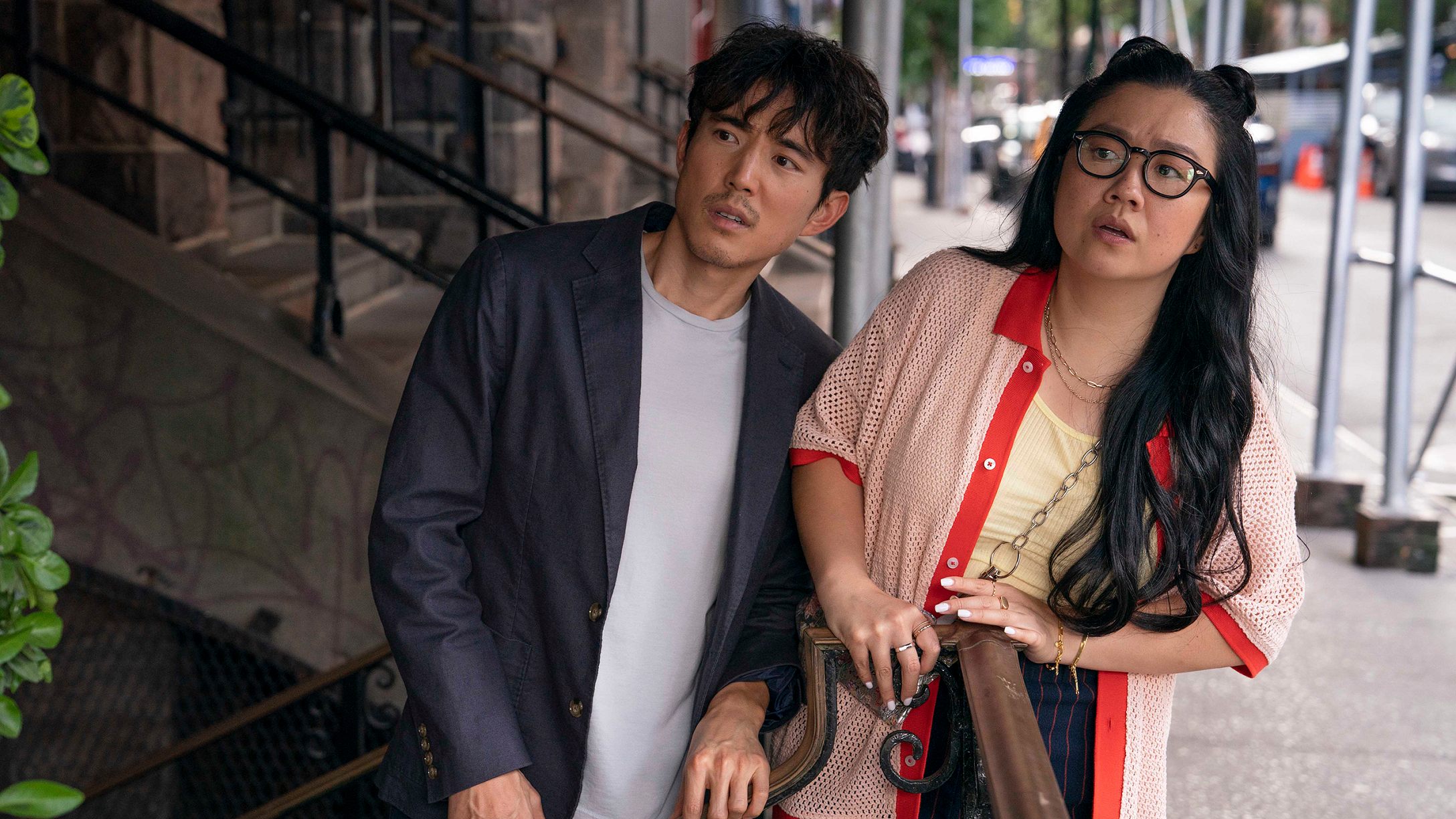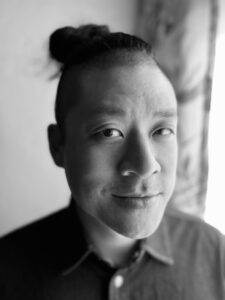
Gene Back spoke with Solzy at the Movies over the phone about scoring Shortcomings shortly after the Sundance premiere.
Randall Park directed the film from a script written by Adrian Tomine, who adapted from his own graphic novel. The film stars Justin H. Min, Sherry Cola, Ally Maki, Tavi Gevinson, Debby Ryan, Sonoya Mizuno, with Jacob Batalon and Timothy Simons.
Shortcomings follows Ben (Justin H. Min), Miko (Ally Maki), and Alice (Sherry Cola) as they navigate relationships and traverse the country in search of connection. Ben is a struggling filmmaker and his girlfriend, Miko, works for the local Asian American film festival. As if the film couldn’t be more appealing to cinephiles, Ben watches a lot of Criterion Collection movies. He also has a thing for blonde women that are not available. He hangs out at diners with best friend Alice, a queer woman in grad school. What kicks things off, however, is Miko’s move to New York where there’s more than meets the eye.
Shortcomings is now playing in theaters.

Hi, how’s it going?
Gene Back: Oh, pretty good. How you doing?
I am doing well. It’s been a week since getting back from Park City so it’s been a lot of catching up on sleep and a lot of churning out reviews.
Gene Back: Oh my G-d.. Yes. It’s a lot especially because it was a big festival—the first in-person since the pandemic hit.
I know. I was there in 2020 and got sick during the back half of the festival.
Gene Back: Oh, no. A lot of people did. Oh, man. Well, did you enjoy it this time around?
Oh, yeah—except for the part where it’s always a pain in the tuchas getting an Uber or Lyft after a film and at the Eccles.
Gene Back: Oh my G-d, it’s the worst. At least the Eccles is outside of the main part of the city. I was really happy that our premiere was at the Eccles because that meant we didn’t have to wait two hours in traffic or something just to get onto Main Street or something. I’m really happy that they did this in person. I think it was just about time.
How did you first become attached to composing the score for Shortcomings?
Gene Back: Randall and I were actually introduced through BAFTA while I was one of BAFTA’s breakthrough talents and we were introduced really in the middle of while Randall was developing the script. We met, really hit it off, and actually, it wasn’t until a year later that we really started getting into the weeds and talking about the movie after he was finished with production. But yeah, we met—so this is now last year, last summer.
Were you familiar with the graphic novel before going into the film?
Gene Back: I was, yes. It’s iconic in that it’s really one of the few examples of media that really accurately and unapologetically shows the Asian-American experience without the immigration lens or the otherness that is just so often associated with Asian-American stories. It’s the type of story for me that’s just transformative because I could see myself in these characters, which is something that I think is a pretty common reaction for a lot of Asian-Americans, especially second generation and onwards.
What were you looking to do with the score?
Gene Back: Well, Randall had really clear direction from the beginning in that he wanted to explore a few different tones. There’s the movie within the movie, which starts off the film and he really wanted that to be orchestral. We were trying to find a way to merge all these things together, whether it was an orchestral type of theme matched with something more intimate that could musically capture the feeling of the Bay Area, or at least through Ben’s perspective. That was mostly in the form of an indie band type of sound. But also, when we get to New York, we’re really interested and capturing the fanaticism of that city and what it might feel like in Ben’s mind to go to New York from the Bay Area, especially considering his character and stubbornness, and at the same time, finding out ways to convey to the audience what is going through Ben’s head. What is his personality beyond what you see on the screen or hear in the dialog? A big reference, at least for me, personally, was 400 Blows and in the interest of communicating with this guy, Ben, who’s the main character. He’s a big Criterion nerd. He’s a film snob and what better way then to pay a little tribute or wink at the birth of a French New Wave. There’s all these little easter eggs that we put in there to help convey, musically, Ben’s psyche.
When it comes to your own process, do you start working off the script or do you wait until you see footage?
Gene Back: For my process, I always love to work from the script, because then I can visualize within my own mind of how a scene can play out musically. I actually start working on theme from the script right away. Oftentimes, it helps both me and the director—in this case, Randall—actually hear something without needing to have it specifically cut to picture. Once you get that feeling, that energy or the tone, it really allows us to be more flexible in expanding those things and being more intentional about how score functions.
Were there any challenges in recording the score because of the pandemic?
Gene Back: Things have gotten really efficient in the last few years when it comes to recording remotely. We have a tremendous luxury of evolving technology and that has been the case with scoring in that doing things remotely is really not an issue anymore. There are platforms and technologies that allow us to stream audio from a studio in real-time high resolution—whether it’s in New York, where we recorded a lot of the percussion and drums, or Budapest, where we recorded the orchestra. We did all of that remotely. It really went off without a hitch. I have to say it’s been very smooth in the last couple of years when it comes to recording remotely.
How did you first get interested in becoming a film composer?
Gene Back: My journey as a film composer started kind of late. It was never anything I thought was going to be my path, especially when I was young. I’m a violinist by training and a songwriter so that was really the beginning of my journey as a composer. I wrote songs as a self-taught guitarist when I was a teenager, and then it wasn’t until after I did touring with bands after college and things like that, that I started to explore writing for visual media. My first stop was actually through advertising. I started making music for ads and then from there, I started to slowly get short film jobs and independent film jobs. It just kind of grew from there, organically. That’s where I am now.
Yeah. In fact, I’ve actually been seeing Facebook memories pop up for the whole SXSW conflict with Holler and two other films premiering at the same time.
Gene Back: Oh! That’s right. Oh my goodness. I almost forgot about that. Yeah, that was a tremendous moment for Holler. I’m really happy with how that came out.
Yeah. I have to tell Nicole Riegel that I spoke with you.
Gene Back: Yes, yes. Please send my best.
It was so nice to talk with you. Congrats again on the film and Sundance and everything.
Gene Back: Great. Thanks so much. It was great to chat with you as well. I’m looking forward to just seeing where all this goes.
Sony Classics releases Shortcomings in theaters on August 4, 2023.
Please subscribe to Dugout Dirt and Solzy at the Movies on Substack.



